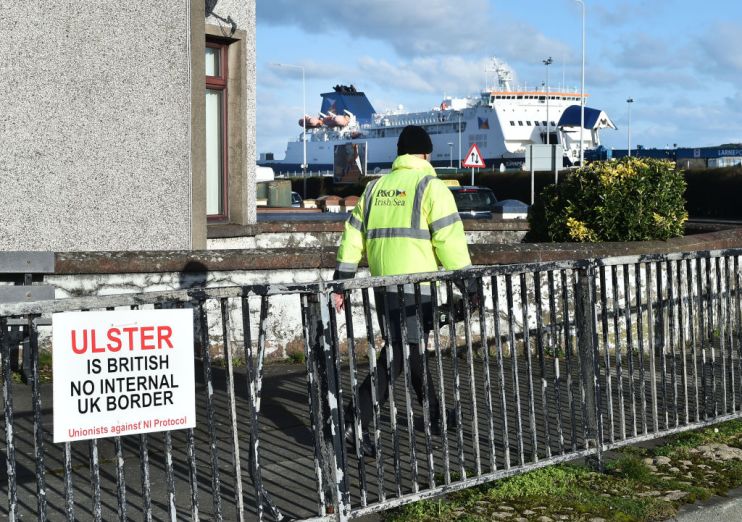EU Brexit chief Maros Sefcovic says Northern Ireland issues to be fixed by 24 February

European Commission vice president Maros Sefcovic has told Irish lawmakers today that he wants Northern Ireland’s post-Brexit issues solved next week.
Sefcovic, who is in charge of UK-EU relations for Brussels, said he wanted the border problems solved by the end of his meeting with Cabinet Office Minister Michael Gove on 24 February.
He also told Ireland’s parliament that the European Commission wants to set up a “clearing house” to instantly address any issues that pop up in Northern Ireland.
Tensions have escalated in Northern Ireland since the EU’s quickly overturned decision to activate article 16 in the Northern Ireland protocol, which would have created border checks on the island of Ireland and violated the Good Friday Peace Agreement.
The move happened amid a vaccines dispute between the UK and EU.
Sefcovic said today that the saga had been “an administrative mistake” by the EU.
“What happened in that week was the fact we had been under enormous pressure to make sure the EU gets a fair share of vaccines and just to put it into the perspective…if it comes to the latest crisis driven by Covid-19 in just a few months we adopted more than 1,000 legal acts.
“It might happen that mistakes are committed in that way.”
The move highlighted the potential for sectarian tensions in Northern Ireland, which still follows the EU’s single market and customs union rules unlike the rest of the UK.
This has meant the creation of a so-called border in the Irish Sea as some goods travelling between Great Britain and Northern Ireland require customs checks, infuriating some Northern Irish Unionists.
Some border guards received death threats at Northern Ireland ports two weeks ago, forcing a temporary stop to checks.
Cabinet Office minister Michael Gove has also requested that there are extensions to the implementation of all customs checks in Northern Ireland until 2023 in a bid to better prepare businesses for the changes.
Gove called for “political solutions” to ensure the smooth transport of chilled meats, mail and medicines between Great Britain and Northern Ireland.
Irish foreign minister Simon Coveney told the Financial Times today that there needed to be “pragmatism and flexibility” when it came to the Northern Ireland border.
“Our focus has to be to try to listen to businesses and in particular to unionism in Northern Ireland and to try to respond to the concerns that have been outlined in as comprehensive a way as we can but — and I think it’s important to stress this — within the confines of the protocol,” he said.